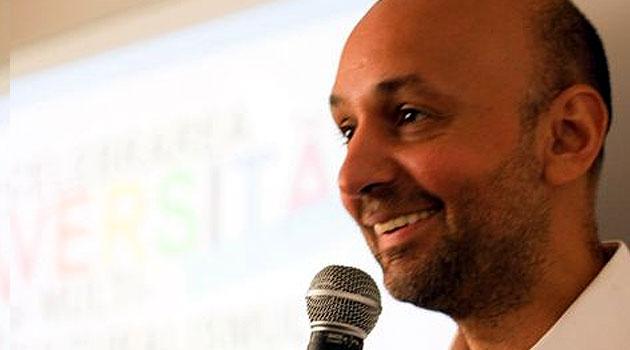Secretary General of the Council of Europe warns its 47 member states against limiting democracy

European states must now make greater efforts so their democratic systems can successfully face down the threat of populism. That is the opinion of Thorbjørn Jagland, Secretary General of the Council of Europe, as expressed in his annual report on the state of democracy, human rights and the rule of law, released on 20 April.
In a statement announcing the report, Jagland warned against states limiting freedom of the press, as many European journalists are concerned that their work is being subjected to political influence and that they themselves are being oppressed. “I urge governments to step up their efforts to protect freedom of the press, to combat hate speech, and to protect minorities by reconstructing their democratic institutions,” said the Secretary General, who visited the Czech Republic on Friday.
The 122-page report is dedicated to those areas considered the pillars of democracy – democratic institutions, freedom of assembly, freedom of speech, inclusive societies and an independent judiciary. In the case of justice systems, the report acknowledges that while most Council of Europe states have laws providing for the judiciary to be impartial and independent, a persistent problem is how they uphold all of the related standards, as when the courts are subjected to political influence, this raises doubts in the eyes of the public as to whether some judges are biased or not.
Despite significant improvements in recent years, the length of court proceedings also remains problematic. With respect to assessing judiciaries, the report found that according to the methodology developed by the Council of Europe’s Commission for the Efficiency of Justice (CEPEJ), Austria, the Czech Republic and Germany have made the most progress on introducing information technologies into the judicial sphere.
The countries worst-off in this respect are Albania, Cyprus and Iceland. European states, according to the report, are also constantly lax when it comes to protecting journalists.
“In 28 of the Council of Europe member states, not enough is done to protect journalists from intimidation or violence. In 17 of the states, conditions that once were considered satisfactory have deteriorated along with a growing number of cases of physical violence and threats,” the report finds, adding that during last year the Council of Europe’s “Platform to promote the protection of journalism and safety of journalists” was informed of 133 possible cases of intimidation of journalists in 29 of the Council of Europe’s member states.
Moreover, 36 of the Council of Europe’s 47 member states consider some forms of defamation to be criminal, and in 29 states prison sentences can be imposed for convicted offenders. Freedom of the media is also complicated by the fact that the role of the press as the watchdog of democracy is limited and that corporations, governments and politicians frequently exploit the media to promote their own influence.
Many states also expressed significant concerns over the growing number of fake or intentionally misleading news reports being published. The Czech Republic was one state raising these concerns, as the report notes.
Jagland’s report notes that the Czech Republic has set up an information verification center to prevent political debate from being influenced by such fraud ahead of the upcoming autumn elections. On the question of protecting freedom of assembly, the report states that even in countries with long democratic traditions, civic groups, demonstrators and NGOs face excessive restrictions, and this problem is deteriorating in connection with anti-terrorism measures.
Some countries are even preventing NGOs from working at all, according to the assessment. “Freedom of assembly is essential to an active civil society and for key control of power,” the report notes.
As for the functioning of democratic institutions in the Council of Europe member countries, the report finds that in some states the judgments of the European Court of Human Rights are being challenged, a test for the supremacy of international law. Another growing problem for the protection of human rights is the fact that domestic secret services are following their own citizens.
In this area, according to the report, it is necessary to strike a balance, taking into account the need to combat terrorism, and that fight must be subjected to the appropriate democratic oversight. The report also dedicates itself to the inclusivity of the societies in the Council of Europe member states, most of which need, according to the report, to adopt extensive anti-discrimination laws.
Jagland sees one exceptional task facing the Council of Europe countries as that of dealing with the current mass migrations while simultaneously upholding human rights. He has also taken a critical position on the hate speech against Muslims underway in Europe through online social networking sites, which in his opinion has reached unprecedented heights.
